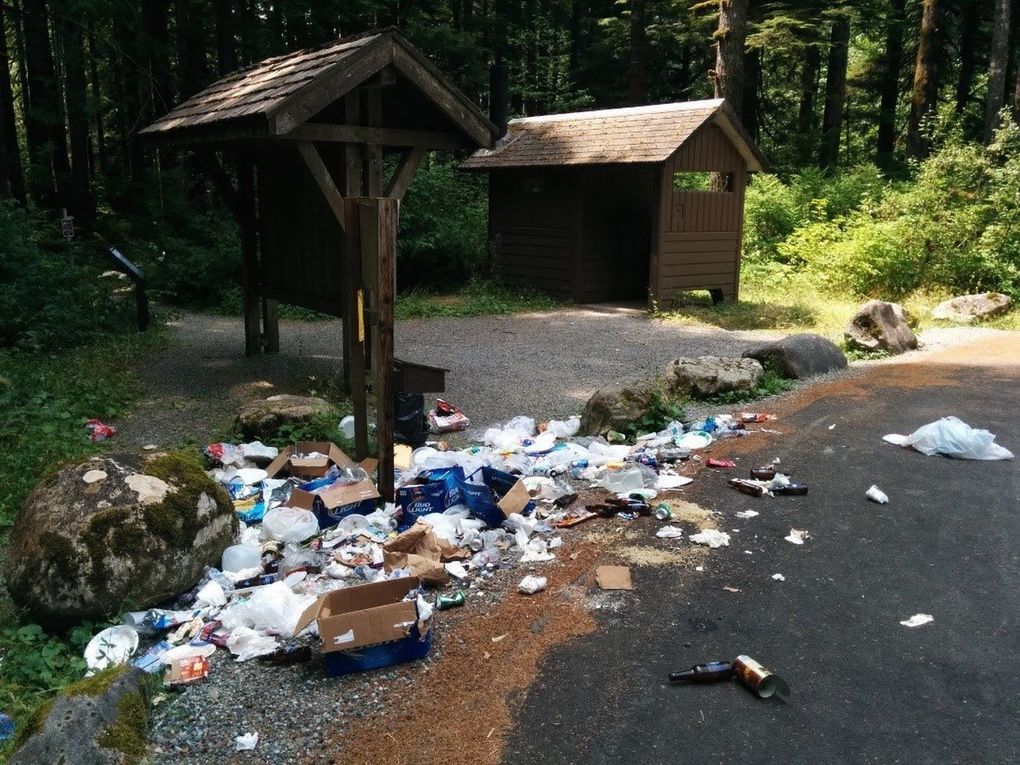By
Special to The Seattle Times
Here’s a “wow” statistic from the U.S. Forest Service: In 2018, wilderness rangers buried more than 400 piles of human waste found scattered throughout the Enchantments near Leavenworth, which, minus the poo, is one of the loveliest wilderness destinations in all of Washington.
A bonus “wow”: The Enchantments camping zone, because of its immense popularity, is equipped with nine privies, all intended to make improper plopping avoidable. Nevertheless, on more than 400 occasions last year, according to a Forest Service spokesperson, visitors decided to plop with impunity and just walk away.
What is going on?
“It’s unbelievable how much surface pooping is going on out there,” said
Craig Romano, a year-round hiker and author of
20 hiking guides for The Mountaineers Books. “I’m coming across it in places I never expected, even remote areas. I find it in the middle of a trail. And toilet paper. Streams of it! What I’m seeing is incredible. It’s absolutely disgusting.”
 The Middle Fork area provides year-round recreation opportunities for the public, but without appropriate law enforcement and education presence, trailheads, day-use areas and the side of the road become... (Courtesy of Monty Vanderbilt) More
The Middle Fork area provides year-round recreation opportunities for the public, but without appropriate law enforcement and education presence, trailheads, day-use areas and the side of the road become... (Courtesy of Monty Vanderbilt) More
Romano believes outdoors etiquette violations have increased substantially over the last five years as, perhaps not coincidentally, social-media use has exploded.
Social media’s ability to attract swarms of visitors to picturesque meadows and alpine lakes has presented a new challenge to keeping natural spaces looking even quasi-pristine.
“I don’t think anybody anticipated social media — a year ago, or five or 10 years ago — to be what it is today,” said Dana Watts, executive director of the
Leave No Trace Center for Outdoor Ethics. “There’s no question it’s having an impact. It is something we’re very much paying attention to.
With more people venturing into the outdoors — many in pursuit of the perfect Instagram snap — Romano can reel off a list of etiquette violations he’s witnessed: Litter, off-leash, free-range dogs, keep-out signs ignored, switchbacks cut, social trails splitting meadows and noise.
“The first time I heard music on speakers in the backcountry, I thought, ‘This can’t possibly be.’ Now it’s very frequent, and people are blasting it,’ ” Romano said.
“I’ve heard people say people who do these things are just ‘hiking their own hike.’ That doesn’t mean you do what you damn well please. Trails are on public property and come with rules and regulations. Roads are public property, too, and we share them with a lot of people. I can’t just drive my own drive. … That mentality astounds me. Trails are being inundated with a lot of new, clueless people right now, and we need a massive public-education campaign.”
No comments:
Post a Comment